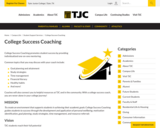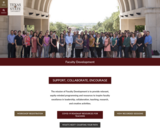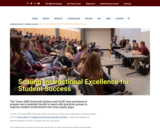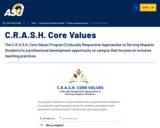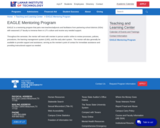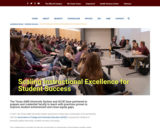The Engaged Learning Institute (ELI) is a robust by-faculty, for-faculty cohort-based program that cultivates the uncovering, sharing, and implementation of engaged learning practices to impact student success. It focuses on transforming student learning in and beyond the instructional space, employing relevant technology to facilitate engaging, inclusive, and accessible student-centered teaching across all modalities. Institute participants share their experiences and build on their expertise through practice, self-reflection, discussion, and redesign.
The Engaged Learning Institute frontloads a contextual framework focused on three core lenses:
ENGAGEMENT is the broad lens through which ELI focuses content to encourage faculty to think about how to intentionally create environments and facilitate opportunities that help students to become world-ready, emphasizing Texas Higher Education Coordinating Board (THECB) core skills. The ELI is centered on four dimensions of engaged learning suggested by the Associate of American Colleges & Universities (AAC&U): classroom, multidisciplinary and contextual, civic and social, and technological and experiential. Engaged learning strategies center students as active participants in their own learning, maintaining essential focus on learners so that they may take ownership of their learning processes.
UNIVERSAL DESIGN FOR LEARNING serves ELI faculty as a framework grounded in neuroscience to advance consideration of ways to intentionally build in multiple means of content representation, skill demonstration, and overall engagement throughout course curriculum and delivery to ensure activation of brain networks essential to student learning.
CULTURALLY RESPONSIVE TEACHING offers ELI faculty a framework to help us craft inclusive environments that honor the whole student. ELI actively works to break down assumptions that Culturally Responsive Teaching (CRT) is reductionist and only about race. ELI supports achievement Title V to facilitate student access and success, specifically focused on developing and enhancing culturally competent faculty and staff through professional development.
DELIVERY FORMAT: The program has a hybrid format or has both online and in-person components.
PROGRAM SCALE: Medium-scale (reaches between 10 and 25 percent of its target population)
DEPARTMENT(S) OVERSEEING PROGRAM: Organizational Excellence and Development
CONTACT FOR MORE INFO: Sha-shonda Porter at sha-shonda.porter@tccd.edu or 8175151208

